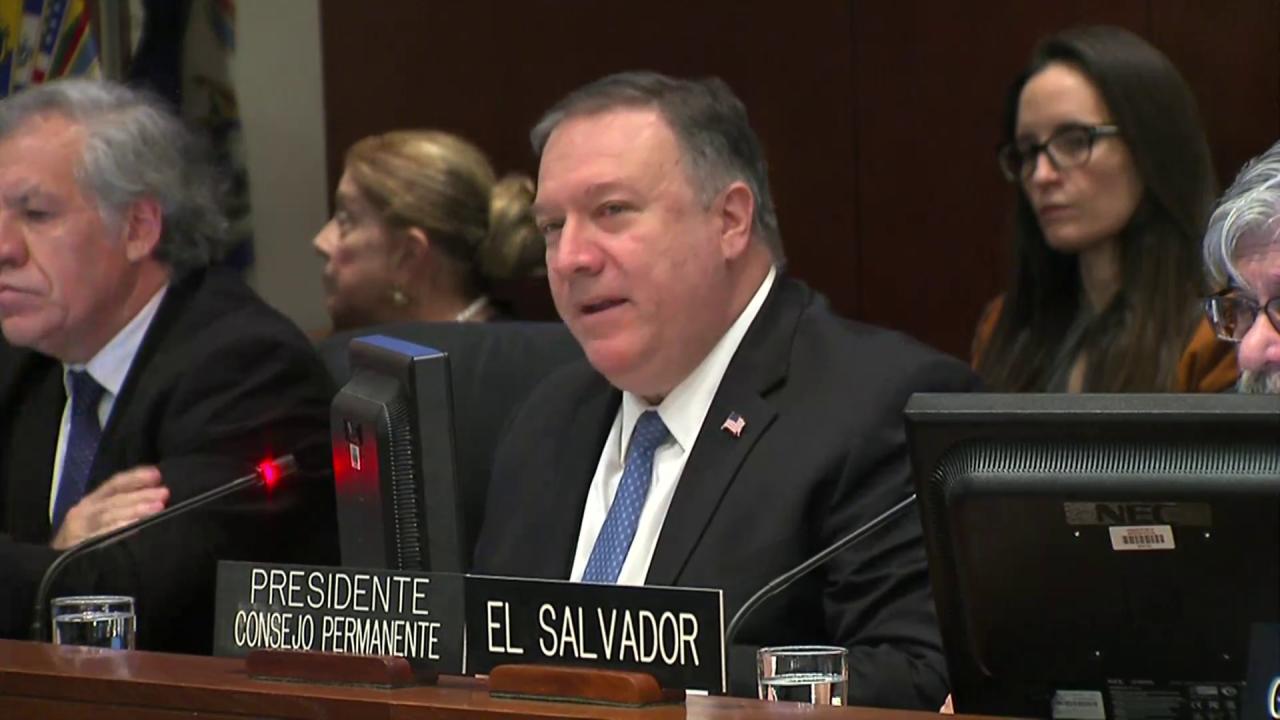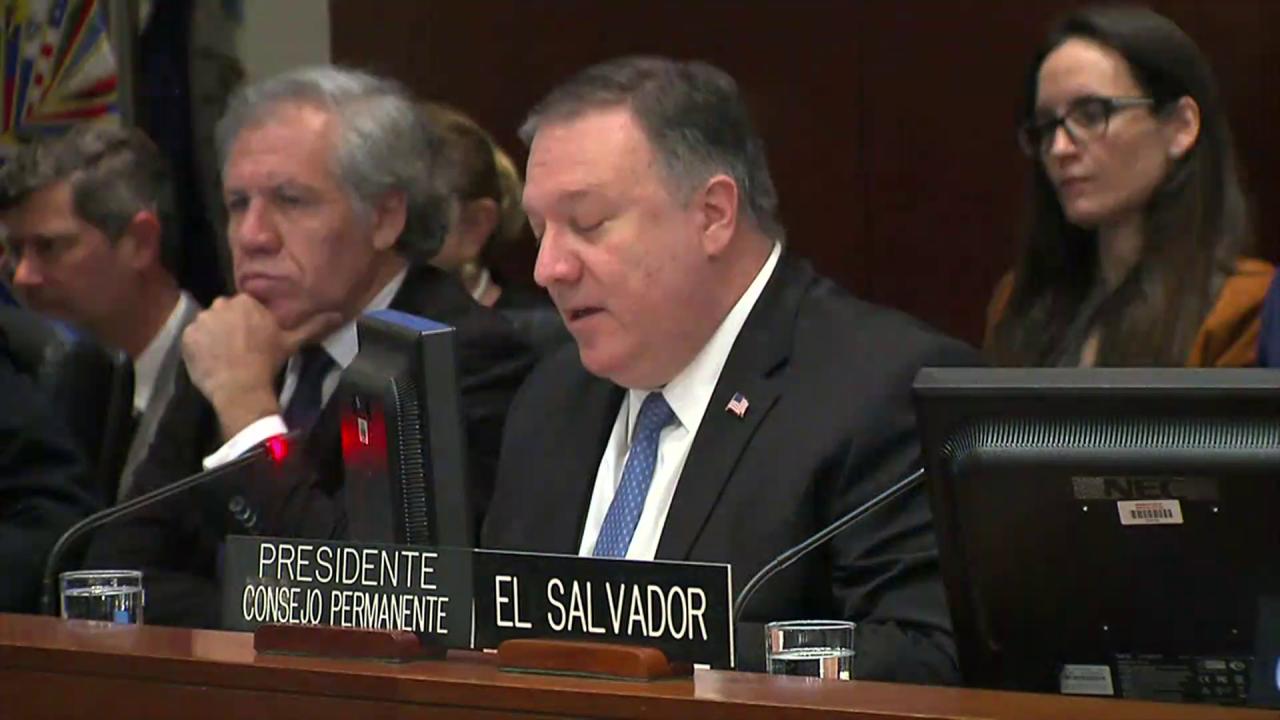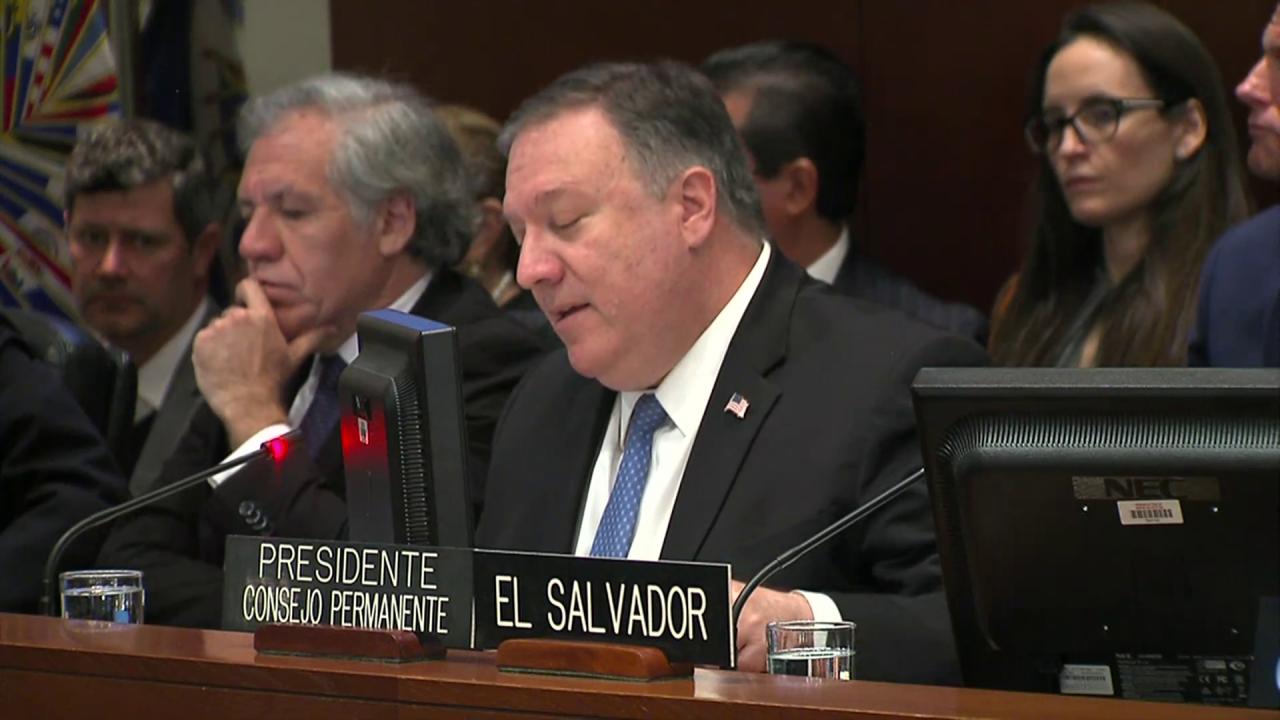On January 24th, the Organization of American States convened a meeting on the situation in Venezuela.
During his opening speech US Secretary of State Mike Pompeo once more reiterated the US position regarding Venezuelan President Nicolas Maduro, claiming that his presidency is illegitimate.
Following the claims that democracy must be upheld by recognizing Interim President Juan Guaido, he also once more called Maduro an illegitimate president and called for regime change.
Furthermore Pompeo announced “more than $20 million in humanitarian aid to the people of Venezuela” to help with the severe crisis.
He concluded by calling on all partners and responsible Organization of American States officials to “how leadership, and pledge support for #Venezuela’s democratic transition and for interim President @JGuaido’s pivotal role in it…History will remember whether we help them or not.”
Also on January 24th, White House National Security Adviser John Bolton was asked why Nicolas Maduro “was worse than other autocrats” Trump had befriended.
“Well, your question is full of fallacies,” Bolton told reporters. “The fact is Venezuela is in our hemisphere. I think we have a special responsibility here, and I think the president feels very strongly about it.”
Furthermore, in the late hours of January 24th, RT reported that the US ordered all “non-essential” diplomats and embassy staff to leave Venezuela “for security reasons.”
“The State Department has also warned US citizens in Venezuela that they should “strongly consider” leaving the country, after Maduro said the US should pull their staff out of Caracas “if they had any sense.””
Venezuela’s Foreign Minister Jorge Arreaza has accused the US – and President Donald Trump personally – of fomenting a coup in Caracas, while Defense Minister Vladimir Padrino accused it of waging “economic war” on his country.
In a televised message on January 24th, Padrino insisted that elected president Nicolas Maduro was the only “legitimate” president. “I warn the people that there is a coup underway against our democracy and our president Nicolas Maduro,” he said.
Padrino reminded of a failed coup attempt by the Bush administration in 2002, saying that “those of us who lived through the coup of 2002 have it etched into our minds, we never thought we’d see that again, but we saw it yesterday.”
RT also interviewed Ecuadorian ex-President Rafael Correa. He said that a situation in which a man “declares himself an ‘interim’ president” and immediately gets recognition from 11 Latin American countries and the US, is “unseen.”
“One can talk about a new Operation Condor now,” Correa said, referring to the infamous campaign of state terror and purges of alleged Communists conducted by US-backed South American dictatorships beginning in 1975.“This is an impressive blow,” the ex-president said, referring to the development in Venezuela. “They avoid resorting to the military [action], assassinations or kidnappings for now because they do not need it. One cannot rule out that they could still resort to such methods” in the future, Correa warned.
However, Russia, China, Iran and Turkey supported Nicolas Maduro, warning the US not to intervene in the country, especially not militarily.





Comments
Post a Comment